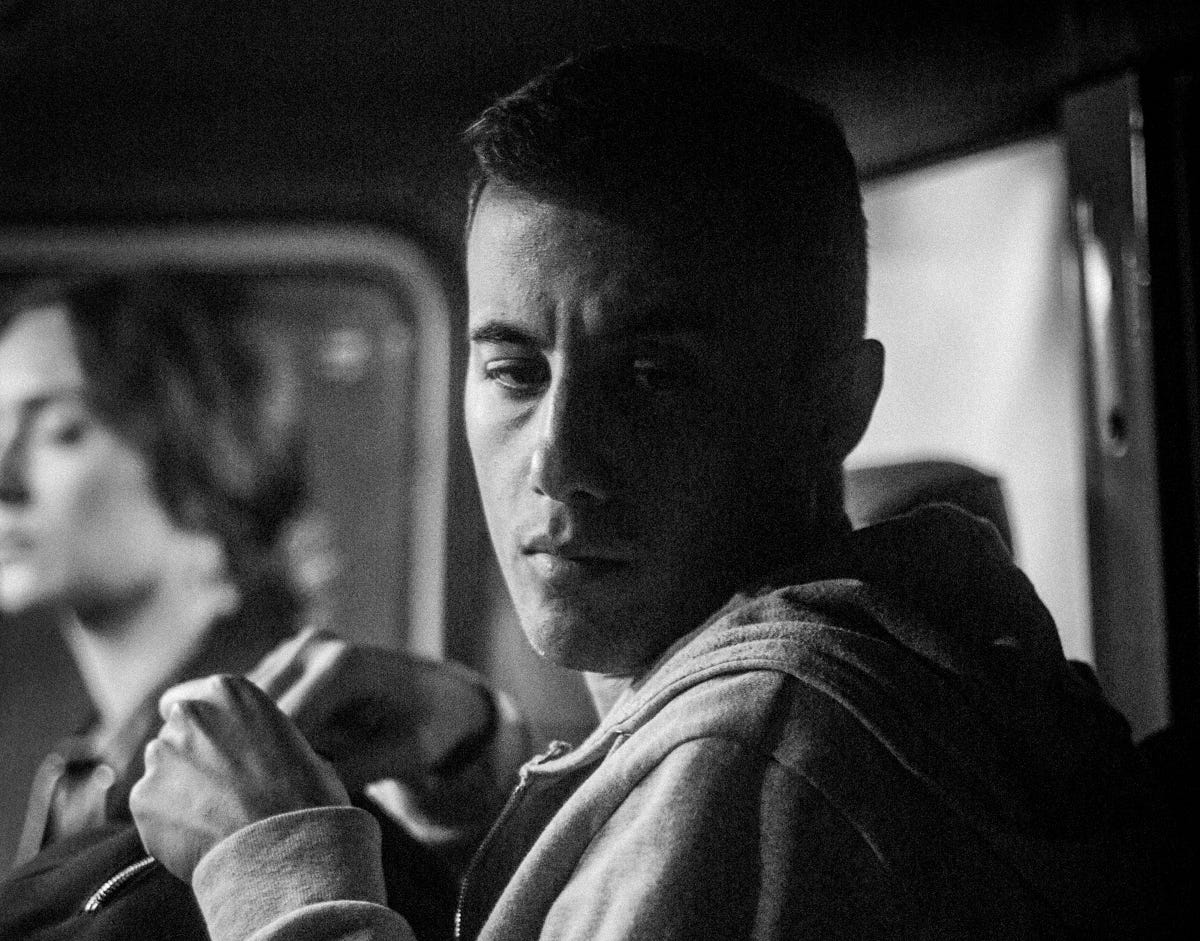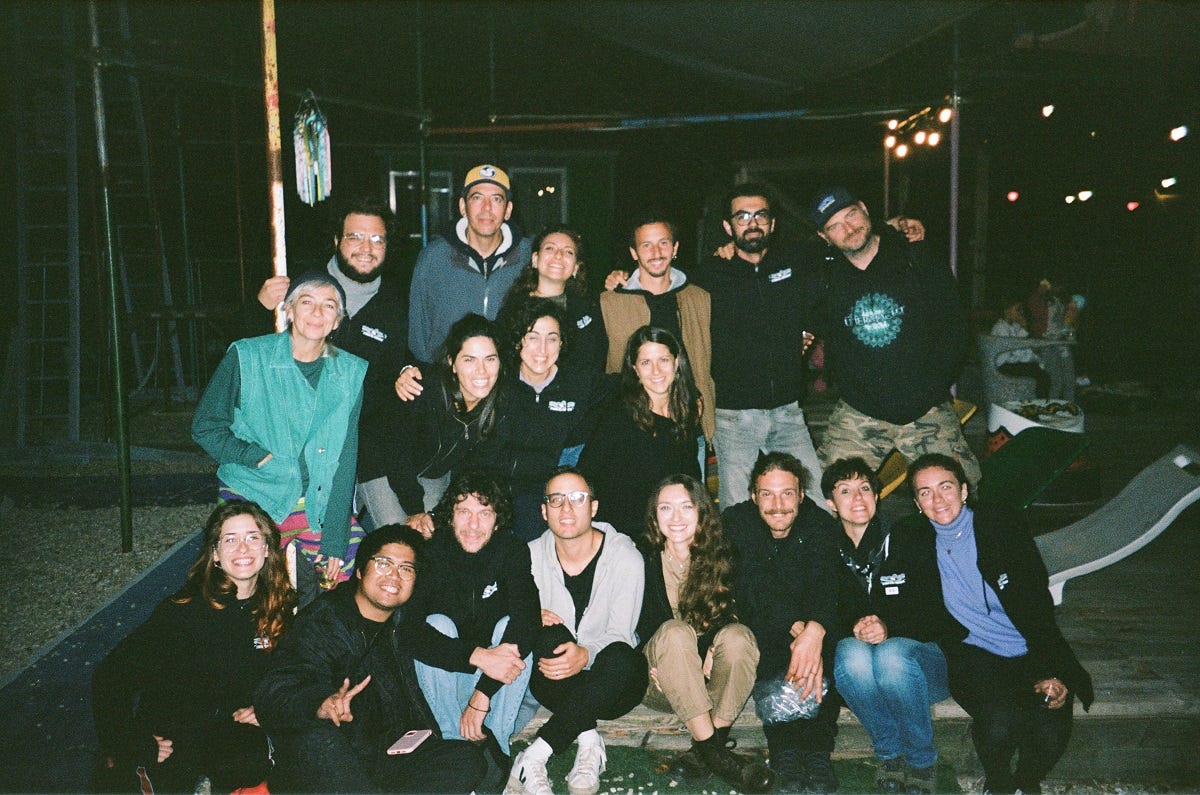Interview: Giuseppe Garau
The filmmaker talks about his Slamdance award-winning film 'The Accident'
In The Accident, single mother Marcella (Giulia Mazzarino) finds herself in a desperate situation after she gets into a car accident with her daughter. While no one was hurt in the crash, she loses custody of her daughter as well as her job, and needs to earn money fast to get back on her feet. A conversation with the tow truck driver for her car inspires her to buy a truck of her own and drive around town trying to pick up broken down vehicles. What she doesn’t realize is that she must compete with other drivers, who are willing to go to extreme measures to ensure she doesn’t take business away from them. Marcella, whose naivete turns into a stubborn resilience against her competitors, soon finds different ways to establish herself and her new business, even if her methods aren’t exactly ethical.
In viewing some of this year’s lineup at the Slamdance Film Festival, The Accident (which I reviewed at The Film Stage) was the first immediate standout. Writer/director Giuseppe Garau shoots the film almost entirely from within Marcella’s car, with the camera largely filming Marcella in close-up. It’s a formal gimmick that pays off given the film’s brief runtime (it doesn’t overstay its welcome) and the clever ways Garau works around his self-imposed constraints.
I interviewed Giuseppe Garau over email shortly after The Accident premiered at Slamdance, where he took home the Grand Jury Prize for the narrative competition. The Accident is currently playing on the film festival circuit, and is still seeking a distributor in North America. To find out more about the film, you can visit its official website.
The world Marcella finds herself in, with corrupt and ruthless tow truck drivers, is not too far removed from reality in some parts of the world. How did you come upon this topic, and how much research did you do while working on your film?
Giuseppe Garau: In 2019, while I was driving with my daughter, I had a car accident. A truck crashed into us, and after a few minutes, even before police and ambulances arrived, we were surrounded by tow trucks. I later discovered that they leave business cards asking people to call them if they see an accident, promising money in return.
I became interested in knowing more about this world. I did a lot of online research and spent some time with them but only for a few days, because most of them didn’t want me on board. I asked myself what would happen if I put a gentle-hearted character into this tough environment.
What made you decide on shooting the film from one perspective inside the car?
I’m tired of the dominant film grammar. I’m obsessed with new formal boundaries in which I can put myself into. I love to experiment, to find new angles and stretch them to the limits. I like to try things and see if they work, see if I can liberate the medium from the standards, but mostly it’s just my way of having fun. I believe that the forced perspective inside the car enhances Marcella’s sense of isolation from the world, and it forces the audience to stay with her the whole time.
How did you work with your cinematographer on developing the film’s look?
With cinematographer Giulia Scintu we wanted it to look natural and feel like vérité. There are lighting setups, of course, but every choice, like the handheld camera, was made in that direction. It was important to embrace the imperfections and make them part of the language, to look for an emotional truth rather than a technical one.
Could you talk about blocking each scene out with your cinematographer and the cast?
I saw the car window as an additional frame within the film frame, so we have the inside world with Marcella and the outside world. As the frame limits were set, blocking ended up being pretty easy, [since] the camera stands still and the cast has to move in and out of the frame. It’s kind of a theatrical idea [for the stage].
The film is comedic, but the style and pacing doesn’t give off that appearance right away. It looks more like a tense drama at first. How did you approach managing these different tones and genres?
That’s a very interesting point because, when I started writing it, it was very dramatic but it was too boring for me. Draft by draft, I started to put elements of comedy in until it became more like a weird comedy. I think this is why it doesn’t feel like [a comedy], until the jokes start coming. Also, usually music really helps comedy, but I didn’t use it that way. There are only a few moments [with a score] and they are all dramatic. I think Billy Wilder was right when he said that making tragic and comic forms together is the hardest of all crafts. I would like to learn and get better at that. Aki Kaurismaki and his style really influenced me. I like to make the Nordic deadpan style meet the Italian, Mediterranean warm acting. I think it’s an interesting and fun marriage.
You’re working on 16mm film with a low budget and small crew. How would you describe your experience during filming?
The crew was made of 20 young people, 10 boys and 10 girls, who are all very good professionals. I would also add the leading actress Giulia Mazzarino to the crew, since she was always on set with us because she’s in almost every single scene. The work environment was very friendly and relaxed. After the first [several] days a really nice group was born, probably the best I’ve ever worked with. We made a WhatsApp group that still goes on today, [more than] one year since the shooting.
We shot with a 50D Kodak 16mm film which has a beautiful quality. We shot with no monitors, so we couldn’t see or playback what we were shooting, and no dailies. We only saw the results at the end of the shooting days. I think not having the monitor really helped us in focusing more on the energy and the performances of the cast, instead of just watching a TV on set.
I wanted to know about location scouting for the film. We don’t see much outside, but the locations Marcella drives through make an impression.
I have to thank the location manager, Giulia Cotugno, for this, and the support of Torino Piemonte Film Commission, which really helped us in obtaining the shooting permits. Since it’s all shot in the streets, having permits for every scene was extremely crucial for us. All scenes were shot in Barriera di Milano, an area of Torino not often used in films. It’s a working class neighborhood that helped the film to have a vibe and a lived texture that you wouldn’t find in the more historical, rich, and clean city center.
There are memorable characters in the film aside from Marcella, like the woman who sells her the tow truck and the drivers who repeatedly show up to intimidate Marcella. What was the casting process like?
The saleswoman character in the script is named Anna, and when Giulia Mazzarino read the script she suggested an actress called Anna Coppola. She’s an incredibly great actress and she was extremely busy with theatre. We had to shoot all her scenes in one day, on a Monday, which is when the theatre is closed. She and Giulia Mazzarino really elevated the film, but I have to say that the whole cast did an incredible job and didn’t rehearse anything.
For my casting process I just look at faces. I don’t ask for self tapes and I don’t rehearse, I just trust my instincts and give a lot of trust to the actors. I help them if something doesn’t sound right, but 99% of the work is made by them.
How do you view Marcella? She goes through a lot, and while she can be naive she’s also clever and adaptable despite the threats and attacks against her.
The words you used are exactly the ones Giulia Mazzarino said when she read the script. I think she’s partly submissive just to avoid [conflict], partly clever, and still very reckless.
As much as Marcella means well, the competition and pressure eventually makes her decide to save her business in a way that harms others. Do you think it’s common today to see people like Marcella, who get pushed into doing things that go against their own sense of morality?
Very common. I think that, in different shades, it’s what society expects us to do all the time. It’s normalised that we have to compromise our own morality just to survive. Kindness is a weakness because we constantly live under a toxic pressure to succeed. [We’re] forced to compete against each other in a way that leads us nowhere.






